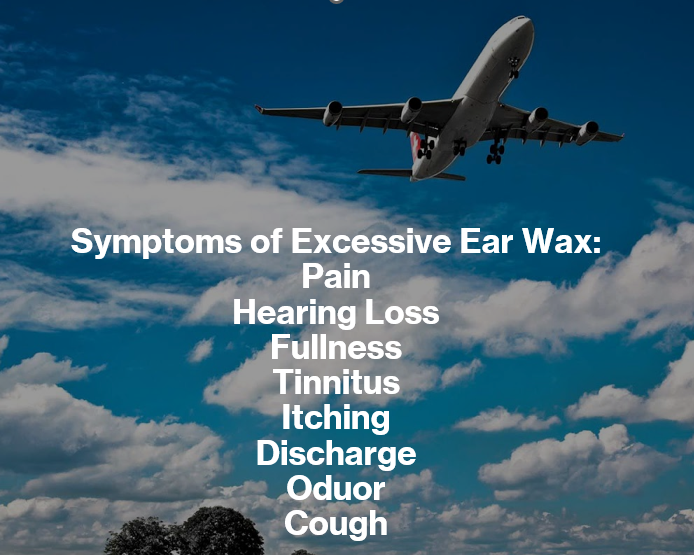Air travel subjects the human auditory system to rapid atmospheric pressure changes, particularly during ascent and descent. For individuals with cerumen impaction (ear wax blockage), these changes can result in a range of otological symptoms, from discomfort to acute pain and temporary hearing loss. This article outlines the physiological mechanisms behind these symptoms and why ear wax management is critical prior to flying.
🧠 The Physiology: Pressure Regulation via the Eustachian Tube
The Eustachian tube plays a crucial role in equalizing middle ear pressure with the external environment. Under normal conditions, swallowing, yawning, or chewing activates the tube, allowing air to flow and pressure to balance on both sides of the tympanic membrane (eardrum). However, when the external auditory canal (ear canal) is occluded with cerumen, sound conduction is impaired and the tympanic membrane may not respond adequately to pressure changes. Furthermore, the sensation of blockage can be intensified, and the Eustachian tube’s ability to ventilate the middle ear may be indirectly affected by the discomfort and inflammation that sometimes accompany wax buildup.
🔬 Common Symptoms Exacerbated by Cerumen During Flight
When atmospheric pressure changes during flight, individuals with impacted ear wax may experience:
- Aural Fullness and Discomfort
- Conductive Hearing Loss
- Tinnitus
- Vertigo or Disequilibrium
- Barotrauma Risk (ear pain or potential tympanic membrane rupture)
In some cases, symptoms can persist post-flight due to residual negative middle ear pressure or wax-induced inflammation.
❌ The Risks of Self-Treatment
Many patients attempt to self-manage cerumen impaction using cotton swabs or home irrigation kits. These methods are often ineffective and can worsen the problem by pushing wax deeper into the canal or damaging the epithelial lining of the ear canal, increasing the risk of otitis externa (outer ear infection).
✅ Clinical Management of Cerumen Prior to Air Travel
For individuals who fly frequently or have a history of ear problems during air travel, pre-flight cerumen management is strongly advised. The most effective clinical interventions include:
- Microsuction – A safe, precise method performed under direct visualization using an operating microscope or loupes.
- Irrigation – Controlled flushing of the ear canal with body-temperature water or saline (only when no contraindications like perforation are present).
- Manual Removal – Using curettes under direct vision.
A thorough otoscopic examination is essential prior to any removal procedure to assess the nature of the impaction and check for any contraindications.
📍 Professional Ear Wax Removal Services
We provide expert cerumen management at our modern clinical facilities:
📍 Clinics located in Callington, Liskeard & Saltash
📞 Call to Book: 07494 454613
💻 Online Booking:www.earwaxremoval.me
✈️ Conclusion
Cerumen impaction, though often benign, can significantly impair a traveler’s comfort and auditory function during air travel. A brief, non-invasive procedure can prevent complications, particularly for those with pre-existing Eustachian tube dysfunction or recurrent otitis media. Pre-flight ear assessments should be considered standard for frequent flyers or anyone with known ENT issues.
